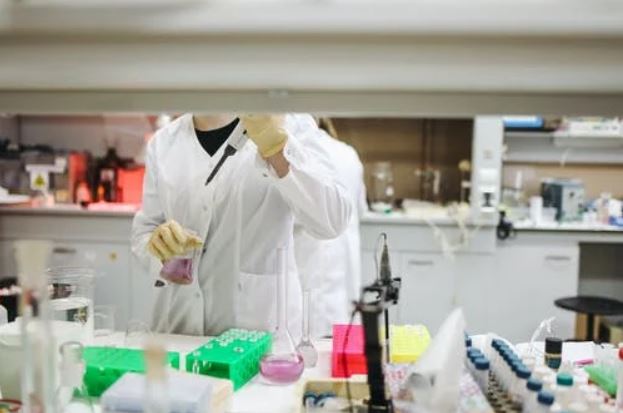A normal person encounters thousands of viruses every day. While some are contracted through skin-to-skin contact, others are collected through sexual intercourse. Different viruses can cause different infections and diseases. The only consolation here is that there are various vaccines that have been developed to fight different viruses. In this article, we will focus on the HPV vaccines and look into their pros and cons.
What Is HPV?
HPV is short for human papillomavirus, which is a viral infection. Its mode of transmission is through skin-to-skin contact and sexual intercourse. There are different types of HPV and more than 40% of these HPV types are contracted through sexual intercourse and can further affect the genitals, throat or mouth.
It has been noted that most sexually active people are very likely to get HPV at some point in their life. According to the Centers For Disease Control And Prevention, HPV is a very common sexually transmitted infection; in fact, it is the most common.
What Causes HPV?
HPV can be caused by having skin contact with another person who is infected. The implication is that so many people have HPV without knowing it. HPV is also contracted from sexual intercourse whether vaginal, anal or oral. You can get HPV from your sexual partner because they may not be aware that they have it.
Also in rare cases, a pregnant mother can transmit HPV to her baby during delivery. In this case, the baby might develop a condition called recurrent respiratory papillomatosis, where the baby develops HPV-related warts inside their throat or airways.
Symptoms of HPV
HPV usually doesn’t cause any noticeable symptoms; that is why people can have it without knowing. More than 90% of HPV goes away on its own after two years. In a situation where the virus persists after two years, it can develop into a serious health problem, such as warts and even cancer. For warts, it could be genital warts or warts in the throat. For cancer it can be cervical, genital, head, neck or throat cancer.
Note that the HPV that causes warts differ from the ones that cause cancer. So just because you have a wart does not mean that you are susceptible to getting cancer.
How To Test For HPV
There are different ways of testing for HPV for both men and women. For women, a pap test is highly recommended when testing for HPV. The US Preventive Services task force recommends that once a woman is 21 years of age, she should have her first pap test, regardless of whether she is sexually active or not. Pap tests are very good at detecting abnormal cells. These abnormal cells can further signal cervical cancer or other HPV related problems.
Women within that age of 21-29 should get pap tests every three years. Women within the age range of 30-65 should receive a pap test every three years and also receive an HPV test every five years at a maximum (or better yet every two to five years).
For men, there is no test available for the testing of HPV yet. However, the doctor might decide to conduct a pap test for men who are susceptible to getting anal cancer. This boils down to men who receive anal sex frequently and those who have HIV (human immunodeficiency viruses).
Who Is More Likely To Contract HPV?
While everyone is exposed to getting HPV due to its easy mode of transmission, there are people who are at more risk of getting infected. Such people are:
- People who have many sexual partners
- People who engage in unprotected sex, whether vaginal, oral or anal sex
- People with a weakened immune system
- People whose sexual partners have HPV
HPV Vaccines
HPV vaccines help to protect us from getting infected with HPV. There are three major vaccines that have been licensed by the United States for this purpose. The three vaccines are Gardasil®, Gardasil®9, and Cervarix®. These three vaccines prevent us from getting infected with HPV 16 and 18, which have been noted to cause a great percentage of cervical cancer and other HPV-related diseases. Gardasil fights HPV 6 and 11, which cause the majority of genital warts. Gardasil 9 fights against 6, 11, 16, 18 and (31, 33, 45, 52, 58) which cause 20% of cervical cancer.
People Who Need HPV Vaccines
- People within the range of 9-26 years – It is recommended for children and adults within this age range to get HPV vaccines. People within the range of 27-45 years – While people of this age can get HPV vaccines, it is not ideal to wait till you get to this age range before you get vaccinated. This is because, at this point, it may not be as efficient as it should have been because those involved are already been exposed to the virus
- For pregnant people – It is very advisable to delay HPV vaccines when a person is pregnant. The vaccine should only be injected after childbirth
How Do HPV Vaccines Work?
HPV vaccines once taken, provides antibodies. These antibodies will help prevent the body from getting infected with the human papillomavirus. It should be noted that HPV vaccines do not prevent other sexually transmitted diseases, and they do not also treat existing HPV infections or HPV caused diseases.
Pros and Cons of HPV Vaccines
Most vaccines have their benefits as well as side effects. So let’s quickly look at the pros and cons of the HPV vaccine:
Pros
- Your body can fight against HPV 16 and 18, which causes certain cancers
- HPV vaccines also help in fighting against strains which cause genital warts and other types of warts
Cons
- Just like other vaccines, HPV vaccines have their own side effects. The good news is that the case of side effects has been rare ever since the development of the vaccine. The few mild side effects which can be encountered includes
- Feeling pain or swelling at the injection site
- Mild fever
- Headache
- Fatigue
- Pain in the muscle
- Pain in the joint
- Feeling of nausea
- Abdominal pain
- Diarrhea
- Limited function (while the vaccine can fight against some type of HPV related cancers, there are some that they can’t fight off. This means that women should still get their pap tests done for other signs of cervical cancer. Also, HPV vaccines don’t treat existing HPV related infections)
Conclusion
HPV infections are very common and with the vaccines, you are sure of being protected to a great extent. It is in your own best interest to get vaccinated; you have nothing to worry about as these vaccines have been proven to be safe with few side effects. With HPV vaccines, the pros surely outweigh the cons.
References
- https://www.cancer.gov/about-cancer/causes-prevention/risk/infectious-agents/hpv-vaccine-fact-sheet
- https://www.cancer.gov/about-cancer/causes-prevention/risk/infectious-agents/hpv-vaccine-fact-sheet
- https://www.cdc.gov/std/hpv/stdfact-hpv-and-men.htm#:~:text=HPV%20is%20a%20very%20common,skin%20touching%20during%20sexual%20activity.





